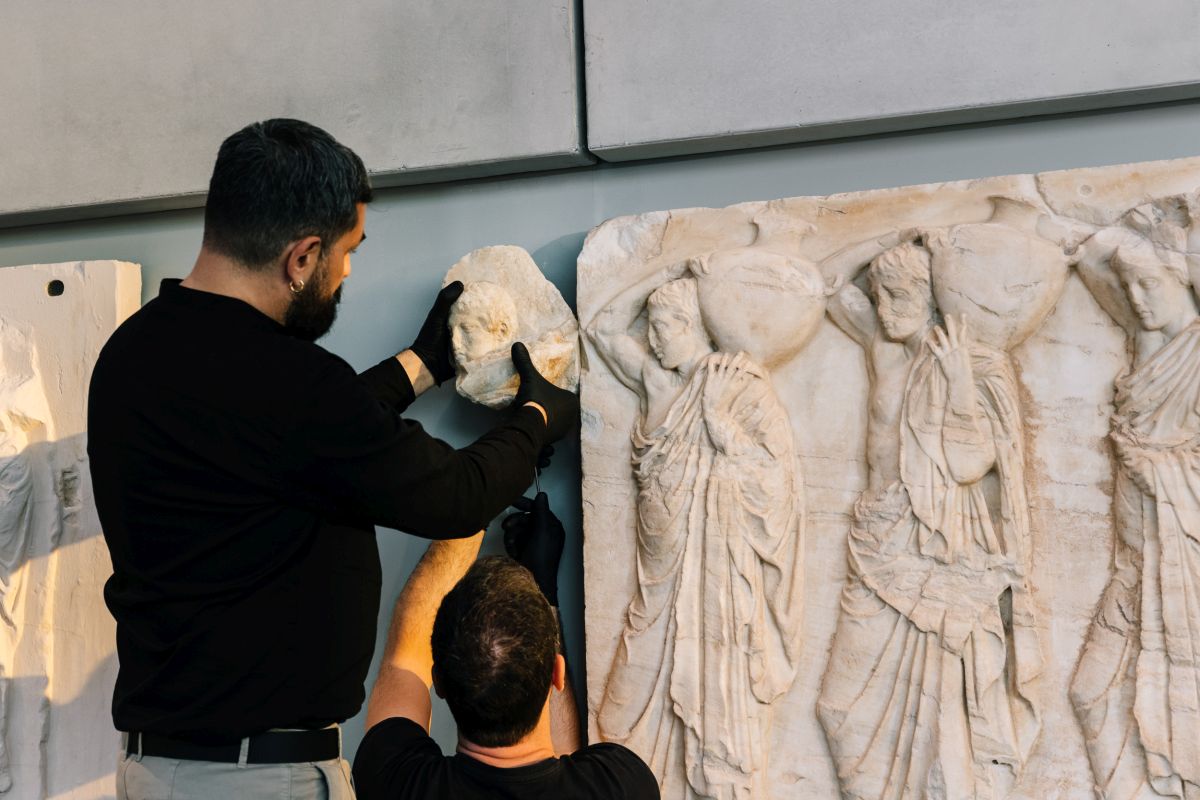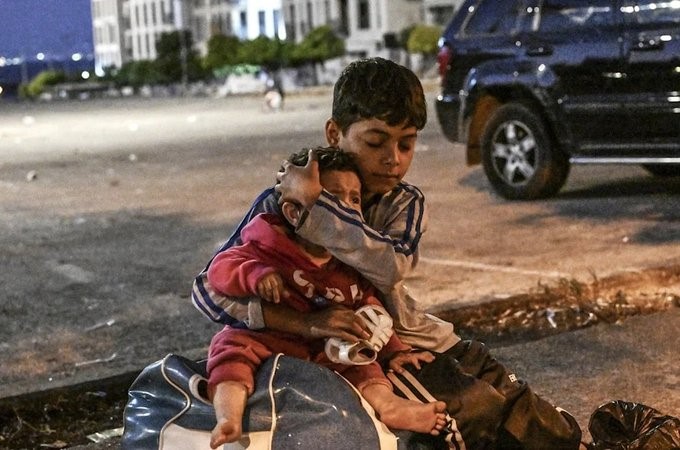In 2025 the Parthenon Sculptures “may finally be moved, or at least negotiations over their status may take a big leap forward.”
This is emphasized by the Economist magazine, among others, in its annual edition of the next year’s predictions, which this year is expected to be published online tomorrow 11/21 and in print next week.
Many arguments against the return of the Marbles have been overturned. The idea that the British Museum is the only competent custodian of them has always seemed false, even more so after the accusation that one of its staff members stole almost 2,000 antiquities and sold them on eBay.
Equally strong is the shift in public sentiment: a YouGov poll conducted in 2023 found that 49% of Britons favor their return and just 15% believe they should stay.
The British Museum itself, and the government, also seem ready. A 1963 law prohibits the museum from giving away its treasures, and the government is unlikely to revise it. But both the museum’s chairman, George Osborne, and its reform-minded new boss, Nicholas Callinan, support a long-term loan of the marbles, perhaps borrowing other antiquities from Greece in return. The prime minister, Sir Keir Starmer, has said he will not stand in the way.
The returns of antiquities to other countries
Many objects have been returned to the Mediterranean countries from which they were taken, such as Italy and Turkey. Activists in Cambodia have also persuaded, among others, the Metropolitan Museum of Art in New York to return the stolen sculptures. In Africa, Nigeria led the way, securing dozens of copper works—stolen by the British from the Kingdom of Benin in 1897—from German, American and some British institutions.
Items are also beginning to return to Cameroon, Indonesia and Nepal. And Belgium recently gave the Democratic Republic of Congo a catalog of 80,000 objects in its African Museum, an apparent prelude to returns. Bénédicte Savoy, a historian who has advised French President Emmanuel Macron on the return of artifacts to African countries, predicts that China, India and Vietnam will start making more vocal requests.
#Economist #Parthenon #Sculptures #return #Greece
**Given the potential precedents set by other repatriation cases, what creative solutions, beyond outright return or permanent loan, could be explored to address the competing claims and interests surrounding the Parthenon Sculptures?**
## World Today News: The Future of the Parthenon Sculptures
**Introduction:**
Welcome to World Today News, where we discuss the most pressing global issues. Today, we delve into the long-standing debate surrounding the Parthenon Sculptures, currently housed in the British Museum. Joining us are Dr. Sophia Papadopoulos, a historian specializing in Ancient Greece and cultural heritage, and Mr. Thomas Radcliffe, an art curator and museum consultant with expertise in international repatriation matters.
**Part 1: Shifting Tides:**
* **Dr. Papadopoulos**, your research focuses on the historical and cultural significance of the Parthenon sculptures within the broader context of Grecian heritage. Can you elaborate on why their repatriation holds such profound meaning for Greece?
* **Mr. Radcliffe**, the article mentions a shift in public opinion in Britain regarding the return of the sculptures. What factors might be driving this change in sentiment, and how significant is this shift in influencing potential decisions?
**Part 2: The Legal Landscape:**
* **Mr. Radcliffe**, the British Museum operates under a 1963 law that prohibits the disposal of its artifacts. What are the potential legal hurdles that need to be navigated for a successful repatriation, and are there precedents for such arrangements in other cases?
* **Dr. Papadopoulos**, how do you see the potential for a long-term loan, as proposed by the British Museum, addressing the concerns of both sides? Would this be an acceptable solution in your view?
**Part 3: The Global Context:**
* **Dr. Papadopoulos**, the article cites numerous examples of artifacts being returned to their countries of origin, including Italy, Turkey, and even Nigeria. How does the Parthenon Sculpture case fit into this broader global movement for repatriation?
* **Mr. Radcliffe**, the article mentions predictions regarding increased requests for repatriation from countries like China, India, and Vietnam. What implications could this have on the global museum landscape and the understanding of cultural heritage?
**Part 4: Looking Forward:**
* **Dr. Papadopoulos**, what message would you like to convey to those who may still be hesitant about the repatriation of the Parthenon Sculptures?
* **Mr. Radcliffe**, what do you foresee as the most likely scenario for the Parthenon Sculptures in the next few years? Do you believe a resolution is finally within reach?
**Conclusion:**
Thank you both for sharing your valuable insights on this complex and compelling topic. The debate surrounding the Parthenon Sculptures undoubtedly reflects broader questions about cultural identity, ownership, and the role of museums in the 21st century. As this conversation continues to evolve, World Today News will be following developments closely and continue to provide a platform for diverse perspectives.


